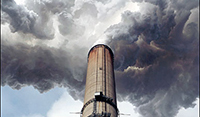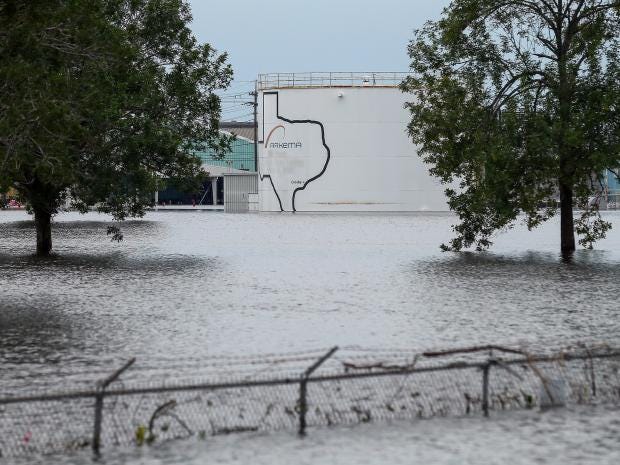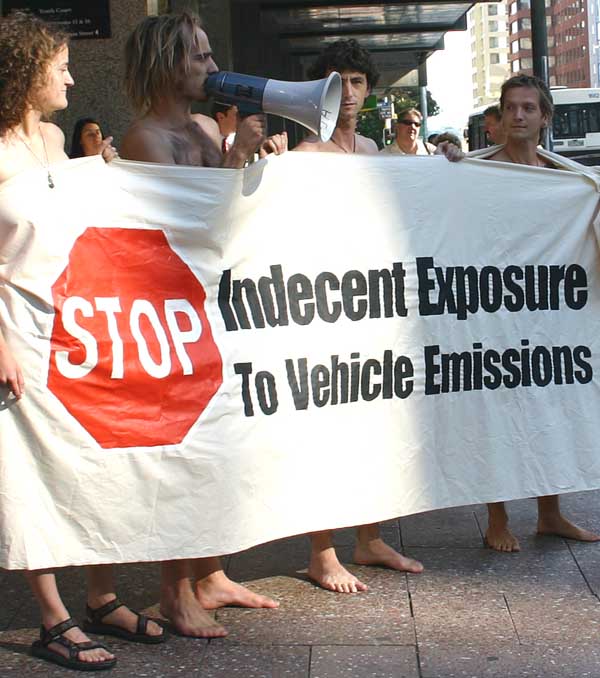
While the news has lately focused on political high crimes and misdemeanors, 2019 has also seen plenty of corporate crimes and violations. Continuing the pattern of the past few years, diligent prosecutors and career agency officials have pursued their mission to combat business misconduct even as the Trump Administration tries to erode the regulatory system. The following is a selection of significant cases resolved during the year.
Online Privacy Violations: Facebook agreed to pay $5 billion and to modify its corporate governance to resolve a Federal Trade Commission case alleging that the company violated a 2012 FTC order by deceiving users about their ability to control the privacy of their personal information.
Opioid Marketing Abuses: The British company Reckitt Benckiser agreed to pay more than $1.3 billion to resolve criminal and civil allegations that it engaged in an illicit scheme to increase prescriptions for an opioid addiction treatment called Suboxone.
Wildfire Complicity: Pacific Gas & Electric reached a $1 billion settlement with a group of localities in California to resolve a lawsuit concerning the company’s responsibility for damage caused by major wildfires in 2015, 2017 and 2018. PG&E later agreed to a related $1.7 billion settlement with state regulators.
International Economic Sanctions: Britain’s Standard Chartered Bank agreed to pay a total of more than $900 million in settlements with the U.S. Justice Department, the Treasury Department, the Federal Reserve, the New York Department of Financial Services and the Manhattan District Attorney’s Office concerning alleged violations of economic sanctions in its dealing with Iranian entities.
Emissions Cheating: Fiat Chrysler agreed to pay a civil penalty of $305 million and spend around $200 million more on recalls and repairs to resolve allegations that it installed software on more than 100,000 vehicles to facilitate cheating on emissions control testing.
Foreign Bribery: Walmart agreed to pay $137 million to the Justice Department and $144 million to the Securities and Exchange Commission to resolve alleged violations of the Foreign Corrupt Practices Act in Brazil, China, India and Mexico.
False Claims Act Violations: Walgreens agreed to pay the federal government and the states $269 million to resolve allegations that it improperly billed Medicare, Medicaid, and other federal healthcare programs for hundreds of thousands of insulin pens it knowingly dispensed to program beneficiaries who did not need them.
Price-fixing: StarKist Co. was sentenced to pay a criminal fine of $100 million, the statutory maximum, for its role in a conspiracy to fix prices for canned tuna sold in the United States. StarKist was also sentenced to a 13-month term of probation.
Employment Discrimination: Google’s parent company Alphabet agreed to pay $11 million to settle a class action lawsuit alleging that it engaged in age discrimination in its hiring process.
Investor Protection Violation: State Street Bank and Trust Company agreed to pay over $88 million to the SEC to settle allegations of overcharging mutual funds and other registered investment company clients for expenses related to the firm’s custody of client assets.
Illegal Kickbacks: Mallinckrodt agreed to pay $15 million to resolve claims that Questcor Pharmaceuticals, which it acquired, paid illegal kickbacks to doctors, in the form of lavish dinners and entertainment, to induce them to write prescriptions for the company’s drug H.P. Acthar Gel.
Worker Misclassification: Uber Technologies agreed to pay $20 million to settle a lawsuit alleging that it misclassified drivers as independent contractors to avoid complying with labor protection standards.
Accounting Fraud: KPMG agreed to pay $50 million to the SEC to settle allegations of altering past audit work after receiving stolen information about inspections of the firm that would be conducted by the Public Company Accounting Oversight Board. The SEC also found that numerous KPMG audit professionals cheated on internal training exams by improperly sharing answers and manipulating test results.
Trade Violations: A subsidiary of Univar Inc. agreed to pay the United States $62 million to settle allegations that it violated customs regulations when it imported saccharin that was manufactured in China and transshipped through Taiwan to evade a 329 percent antidumping duty.
Consumer Protection Violation: As part of the settlement of allegations that it engaged in unfair and deceptive practices in connection with a 2017 data breach, Equifax agreed to provide $425 million in consumer relief and pay a $100 million civil penalty to the Consumer Financial Protection Bureau. It also paid $175 million to the states.
Ocean Dumping: Princess Cruise Lines and its parent Carnival Cruises were ordered to pay a $20 million criminal penalty after admitting to violating the terms of their probation in connection with a previous case relating to illegal ocean dumping of oil-contaminated waste.
Additional details on these cases can be found in Violation Tracker, which now contains 397,000 civil and criminal cases with total penalties of $604 billion.
Note: I have just completed a thorough update of the Dirt Diggers Digest Guide to Strategic Corporate Research. I’ve added dozens of new sources (and fixed many outdated links) in all four of the guide’s parts: Key Sources of Company Information; Exploring A Company’s Essential Relationships; Analyzing A Company’s Accountability Record; and Industry-Specific Sources.

 There is growing awareness of the dangers posed by Amazon’s ever-increasing market clout, but the concentration of economic power is not limited to that online retailer. More and more U.S. industries have become oligopolies, and in some sectors the top two companies now have a market share
There is growing awareness of the dangers posed by Amazon’s ever-increasing market clout, but the concentration of economic power is not limited to that online retailer. More and more U.S. industries have become oligopolies, and in some sectors the top two companies now have a market share  The Trump Administration likes to play with fire. Now it may be playing with a fire-resistant material that is also a deadly carcinogen. After years of receding as a public health threat, asbestos could make a comeback.
The Trump Administration likes to play with fire. Now it may be playing with a fire-resistant material that is also a deadly carcinogen. After years of receding as a public health threat, asbestos could make a comeback. If the chemical industry spent as much time on product safety as it does on corporate restructuring, the world would be a healthier place. In 2015 DuPont spun off a bunch of its operations with tainted environmental and safety records into a new company called Chemours. Then DuPont engineered a merger with its longtime rival Dow Chemical, which had its own checkered history, to form DowDuPont. The combined company is now making more structural adjustments.
If the chemical industry spent as much time on product safety as it does on corporate restructuring, the world would be a healthier place. In 2015 DuPont spun off a bunch of its operations with tainted environmental and safety records into a new company called Chemours. Then DuPont engineered a merger with its longtime rival Dow Chemical, which had its own checkered history, to form DowDuPont. The combined company is now making more structural adjustments. At a moment when there is all too much talk in Washington about deregulation, a helpful counterpoint has arrived from the Political Economy Research Institute in the form of the latest edition of the
At a moment when there is all too much talk in Washington about deregulation, a helpful counterpoint has arrived from the Political Economy Research Institute in the form of the latest edition of the  It’s refreshing to see the book thrown at a corporate criminal, but it would have been even better if federal prosecutors had aimed higher.
It’s refreshing to see the book thrown at a corporate criminal, but it would have been even better if federal prosecutors had aimed higher. Much of the Gulf region remains flooded, people are still being rescued, and the full magnitude of the damage is not yet known. But soon the center of attention will be the rebuilding effort and how to pay for it.
Much of the Gulf region remains flooded, people are still being rescued, and the full magnitude of the damage is not yet known. But soon the center of attention will be the rebuilding effort and how to pay for it. Jobs versus the environment: The notion that the interests of workers were inherently anti-ecological was widely held in the 1980s. Much of the world now accepts that employment and environmental protection can go hand in hand, but the Trump Administration is trying hard to turn back the clock. Dismantling safeguards is presented as the key to job creation.
Jobs versus the environment: The notion that the interests of workers were inherently anti-ecological was widely held in the 1980s. Much of the world now accepts that employment and environmental protection can go hand in hand, but the Trump Administration is trying hard to turn back the clock. Dismantling safeguards is presented as the key to job creation. Big business would have us believe that it is on the side of the angels when it comes to the Paris climate agreement. A group of large companies just published full-page ads in the New York Times and Wall Street Journal urging (unsuccessfully, it turned out) President Trump to remain in the accord.
Big business would have us believe that it is on the side of the angels when it comes to the Paris climate agreement. A group of large companies just published full-page ads in the New York Times and Wall Street Journal urging (unsuccessfully, it turned out) President Trump to remain in the accord.
You must be logged in to post a comment.